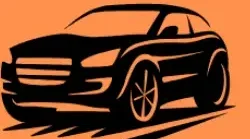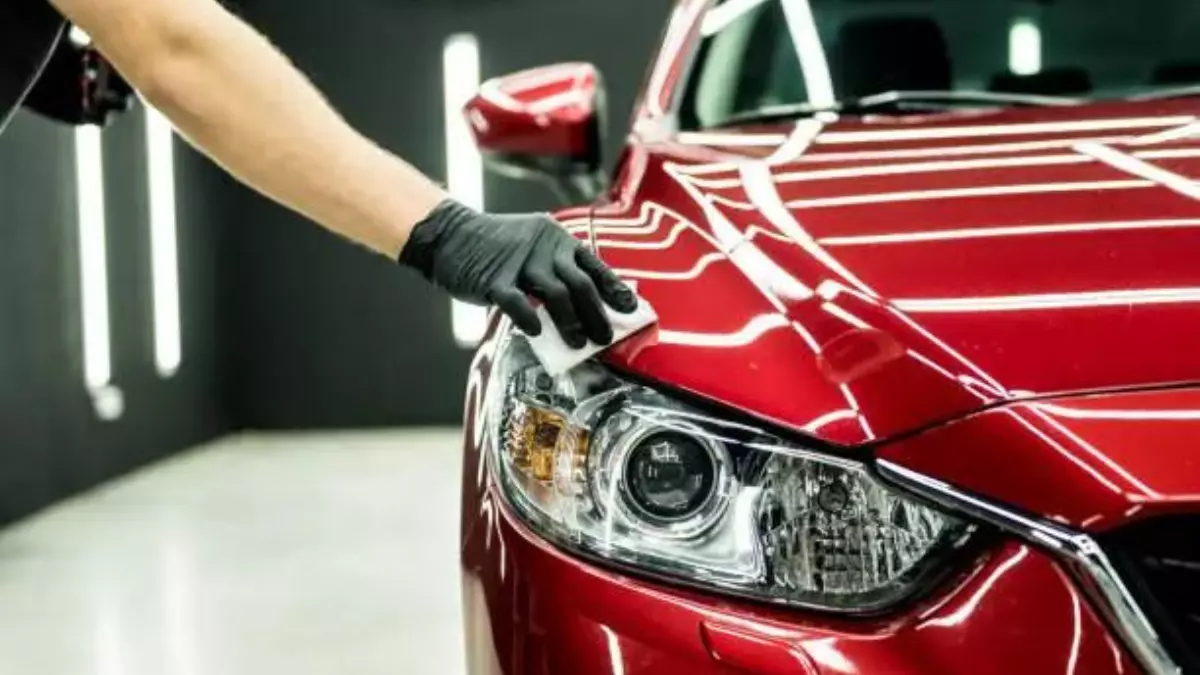In a world where pranks and vandalism are unfortunately prevalent, one common sight is the aftermath of cars being egged. If you’ve ever been a victim of this egging phenomenon, you’re probably wondering whether those innocent-looking eggs can cause real damage to your car’s paint job. In this comprehensive guide, we’ll delve into the impact of eggs on car paint and explore effective ways to remove egg stains without causing further harm to your vehicle.
Understanding the Egg’s Composition
Before we delve into the potential damage eggs can inflict on your car’s paint, let’s take a closer look at what eggs are made of. Eggs consist of two primary components: the egg white and the yolk. Both of these contain different elements that could potentially affect your car’s paint.
The Egg White
Egg whites contain a high amount of water, and when they come into contact with your car’s paint, they can initially seem harmless. However, prolonged exposure to direct sunlight can cause the water in egg whites to evaporate, leaving behind a concentrated solution. This solution contains proteins that can eat away at your car’s clear coat and paint surfaces, leading to damage if not addressed promptly.
The Egg Yolk
Egg yolks are rich in sulfur, which is a component of two essential amino acids: cysteine and methionine. Sulfur is known to be corrosive, and when it comes in contact with your car’s paint, it can cause serious damage. The sulfur in egg yolks can react with the chemicals in your car’s paint, potentially leading to permanent damage if not treated promptly.
The Impact of Eggs on Car Paint
Immediate Damage

When an egg is thrown at your car, the impact can cause immediate damage. The force of the egg hitting your car’s surface can result in paint chips or scratches. These physical blemishes are often the first sign that your car has been egged.
Egg Stains
Eggs can leave unsightly stains on your car’s paint. These stains can be challenging to remove, especially if the egg has dried on the surface. If left untreated, they can become permanent, causing long-term damage to your car’s appearance.
Paint Surface Degradation
As mentioned earlier, the proteins in egg whites and the sulfur in egg yolks can eat away at your car’s clear coat and paint surfaces. This can lead to a deterioration in the quality and shine of your car’s paint job over time.
Permanent Damage
If egg stains are not promptly removed, and the damaged areas are not repaired, the long-term consequences can be severe. The combination of physical damage from the impact, paint degradation, and stains can cause permanent damage to your car’s paint.
How to Remove Eggs from Your Car’s Paint
If your car has been egged, it’s crucial to take action quickly to minimize damage. Here’s a step-by-step guide on how to clean egg off your car without causing further harm:
Step 1: Act Swiftly
The longer the egg sits on your car’s paint, the more challenging it becomes to remove. Therefore, it’s essential to act swiftly.
Step 2: Gather Your Supplies
You’ll need the following supplies to effectively clean egg off your car:
- Clean microfiber towels
- Mild dish soap
- Water
- White vinegar
- Nail polish remover (acetone-free)
- Soft cloth
- Wax (for touch-up after cleaning)
Step 3: Rinse with Water
Begin by rinsing the affected area with water to remove any loose eggshell fragments and egg residue.
Step 4: Prepare a Cleaning Solution
Mix a solution of mild dish soap and water in a bucket. Use this soapy water to gently clean the egg stain.
Step 5: Use White Vinegar
White vinegar is excellent for breaking down egg proteins. Apply a small amount of white vinegar to a clean microfiber towel and gently rub the egg stain. Be cautious not to rub too vigorously, as this can cause scratches.
Step 6: Nail Polish Remover for Stubborn Stains
If the egg stain persists, you can use nail polish remover on an acetone-free soft cloth. Again, use gentle pressure and avoid excessive rubbing.
Step 7: Rinse and Wax
After successfully removing the egg stain, rinse the area with clean water and dry it with a clean microfiber towel. To protect your car’s paint, apply a coat of wax to the affected area to restore its shine and protection.
Avoiding Further Damage
To prevent further damage to your car’s paint, here are some essential tips to consider:
1. Don’t Wait
Act quickly when your car gets egged. The longer you wait, the more difficult it becomes to remove the egg and make it easier to repair the damage.
2. Avoid Scrubbing
While removing egg stains, avoid aggressive scrubbing or using abrasive materials, as this can cause additional scratches.
3. Waterless Car Wash
Consider using a waterless car wash product designed to remove contaminants without the need for excessive rubbing. These products are gentle on your car’s paint.
4. Professional Detailing
If you’re unsure about cleaning egg stains yourself or if the damage is extensive, consult a professional detailer. They have the expertise and tools to address the issue without causing further harm.
Pros:
- Swift Action Can Minimize Damage: If you act quickly to clean egg stains and address any immediate damage, you can minimize the impact on your car’s paint, potentially preventing permanent damage.
- Effective Cleaning Methods: There are effective methods and supplies, such as mild dish soap, white vinegar, and wax, that can help you safely remove egg stains without causing further harm to your car’s paint.
- Preventive Measures: By taking preventive measures like parking in well-lit areas, using security cameras, and building good relationships with neighbors, you can reduce the likelihood of your car getting egged in the first place.
- Professional Help Available: In cases of extensive damage or if you’re unsure about the cleaning process, professional detailers have the expertise and tools to handle egg-related damage.
- Maintaining Your Car’s Aesthetic: Promptly addressing and repairing egg damage helps you maintain your car’s aesthetic appeal and resale value.
Cons:
- Potential for Permanent Damage: If egg stains are not removed promptly and damage is left unattended, it can lead to permanent damage to your car’s paint, requiring costly repairs.
- Scratches and Physical Damage: The impact of eggs hitting your car can cause paint chips, scratches, or dents, which may require touch-up paint or more extensive repairs.
- Time and Effort: Cleaning egg stains from your car can be time-consuming and may require multiple steps and supplies. This can be inconvenient, especially if you’re on a tight schedule.
- Risk of Further Damage: If not done correctly, attempts to clean egg stains can potentially cause further damage to your car’s paint, such as scratches from abrasive materials or harsh chemicals.
- Vandalism Concerns: Dealing with egging incidents can be frustrating and worrisome, as it may indicate a larger issue with vandalism or mischief in your area.
FAQs: Common Questions About Eggs and Car Paint
Q1: Can eggs cause permanent damage to a car’s paint?
A1: Yes, eggs can cause permanent damage if left untreated. The combination of physical impact, paint degradation, and stains can result in irreversible damage.
Q2: What should I do if my car gets egged?
A2: Act quickly to remove the egg stains using a gentle cleaning process as outlined in this guide. The sooner you address the issue, the better.
Q3: Can I use regular car soap to wash off egg stains?
A3: Yes, mild dish soap can be effective in cleaning egg stains. However, avoid using abrasive or harsh chemicals that may damage the paint further.
Q4: Are there any products on the market specifically designed to remove egg stains?
A4: Yes, there are products designed for removing egg stains from cars. Look for reputable brands and follow the manufacturer’s instructions carefully.
Q5: Can throwing eggs at cars cause scratches?
A5: Yes, the impact of eggs hitting your car can cause paint chips or scratches, especially if thrown with force.
Q6: Is it safe to use nail polish remover to clean egg stains?
A6: Nail polish remover can be used for stubborn stains, but make sure it’s acetone-free and apply it with caution to avoid damaging the paint.
Q7: How can I protect my car from future eggings?
A7: Parking your car in a garage or well-lit area, installing security cameras, and building good relationships with neighbors can help deter vandals from egging your car.
In Conclusion
While eggs may seem harmless, they can indeed cause damage to your car’s paint if not dealt with promptly and correctly. The key to minimizing the impact of egging is swift action and gentle cleaning methods. By following the steps outlined in this guide and taking preventive measures, you can keep your car looking its best and avoid the headaches of dealing with egg-related damage. Remember, when it comes to car care, a little proactive effort can go a long way in preserving your car’s paint job.

